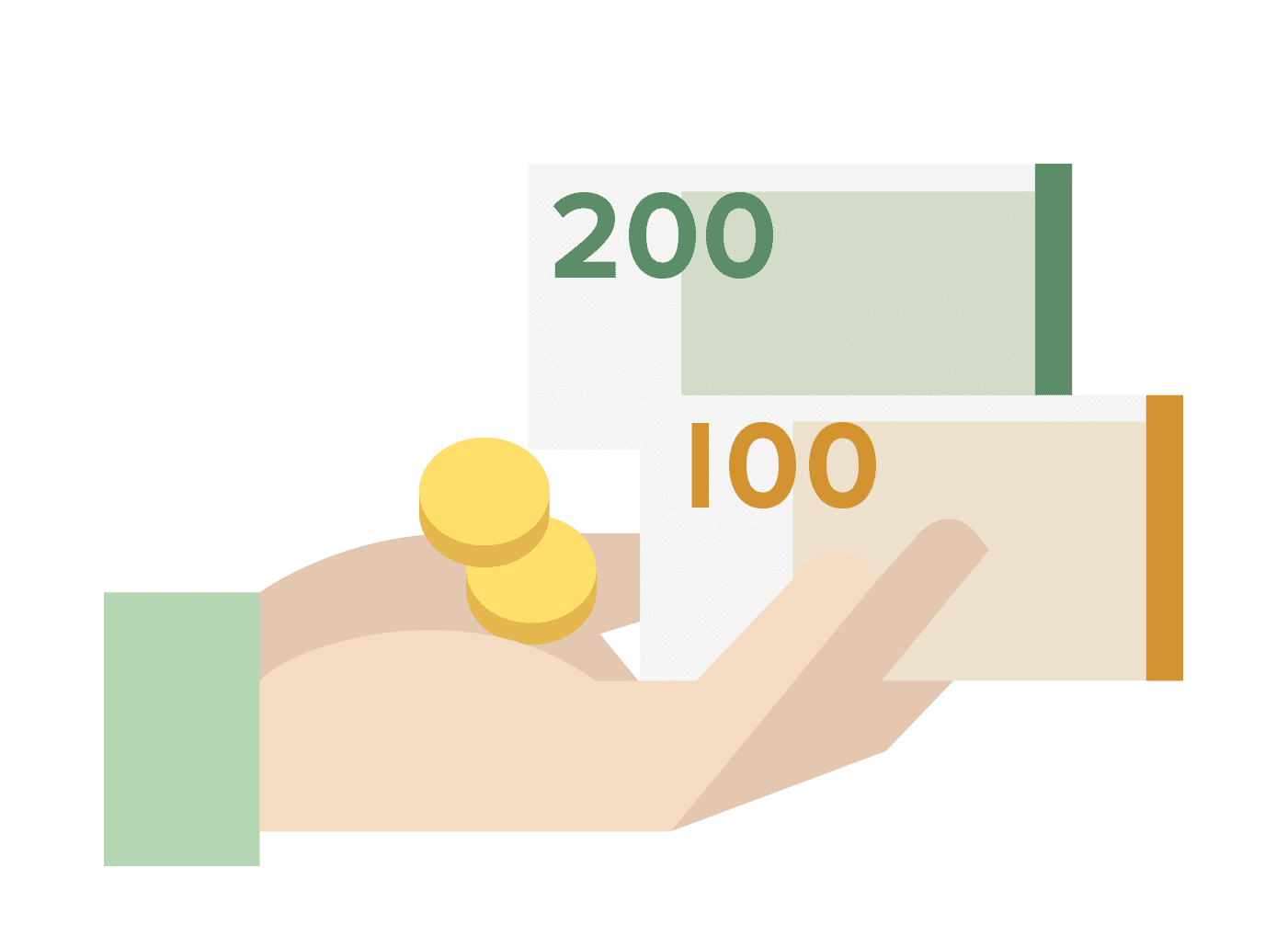So you’re wondering how to become a dentist. That can mean only two things. You’re either interested in dentistry as a career, or you have some serious questions about how competent your dentist is.
Here’s the crazy thing about becoming a dentist. The career ranks at the top of two very opposite lists. Being a dentist is voted as one the most respected careers but it’s also voted as one of the most hated.
How does that happen?
Well as a dentist for many years, I have seen it all first hand and in this article, we’ll dive into some of the reasons why.
If you’re considering dentistry as a career, this ones for you. We’ll discuss the straightforward questions like how to become a dentist, what should you major in, how much does dental school cost, and how many years does it take to become a dentist.
But is that what you really want to know?
Those questions are surface level. They’re not the juicy real-world advice to help you succeed, nor would it show you what dentistry can do for you. In this article, we’ll also talk about all that.
After all, I already made the journey. I made mistakes and faced the challenges. So I’ll look back, connect the dots, and tell you some of the things I wish I knew before dental school.
How to Become a Dentist
When you read articles about how to become a dentist you will notice there’s a significant emphasis on education. And yes, education is important, but there are other character traits that are important to establish well before entering dental school.
If I were to create a perfect dentist, they would be a combination of empathy, knowledge, resilience, and an intangible factor. I describe that final factor best as…grace.
That’s four attributes of my “ideal” dentist. And you know what’s interesting? Only one of the four factors is established in dental school.
The rest are personality traits that are groomed before, during, and after dental school. In other words, you’re continually developing as a dentist.
How Personality Predefines Your Success

Personality is so important for dentists to be successful. Actually, I’d take that one step further. Personality is important in all careers. Period.
But since you asked, let’s look at dentistry specifically. If you’re thinking of applying to dental school, my advice to you is to view it as an investment. No, not an investment in the financial sense, although it requires that too. It’s an investment in yourself. You have to look at it that way, otherwise, you’ll get overwhelmed by the path ahead.
Resilence
Dental school takes several years of education….four years to be specific. And it doesn’t end there. After dental school there are several more years during which young dentists feel pressure to refine their clinical and business skills necessary to succeed.
But that’s the beauty of the journey of becoming a professional. Professionals look at challenges a bit differently. There’s an excitement to tackling a challenge. The reward of lasting improvement begins to outweigh the temporary stress.
And don’t get me wrong, it’s not all roses and sunshine. There will be stressful moments at numerous points during your career, but with a goal-oriented mindset, that resistance can be kept in check.
So here’s what I can tell you about resilience. A prospective dentist should know that dentistry can be incredibly rewarding but it requires an investment of time and navigating stress early in your career.
Therefore, resilience is vital to becoming a dentist. In fact, even if you choose another career…it’s important to that too.
Empathy
The perfect dentist must also have empathy. While I think people can develop resilience through their life experiences, empathy is something that’s prebaked into our character. You can’t fake empathy.
Prospective dentists should know that they will be exposed to patients who are anxious to see them all day long. Dental anxiety can manifest in a variety of ways from being scared, to frustration, to even anger.
Being able to help patients navigate their stress is like kryptonite for a dentist. The best dentists are able to communicate a sense of appreciation for their patients’ perspectives and are able to navigate those emotions accordingly.
Grace
In 1955 Walt Disney, gave a speech at the opening ceremony for Disneyland. He said, “Here age relives fond memories of the past…and here youth may savor the challenge and promise of the future.” You can interpret it however you like, but to me, it’s been important for my career. It speaks to how we are all viewing life within the lens of time. It’s as if Walt was asking, why can’t today’s challenges can be tomorrow’s successes and vice versa?
And that brings me to the final attribute that a dentist should have. If knowledge is the most tangible attribute, this one is the least. It’s not something you’re born with, and it’s not something that’s taught. It’s developed as we establish our identity during our lives.
I call it grace, but it’s more than that. It’s a sense of being nowhere else, but in the moment. Grace is a sense of confidence, charm, and a respect for others—at all times. It’s the ability to inspire. That’s what grace means to me.
As a dentist, you will be a leader of a small business team and a clinical provider. You will be asked to balance the needs of the present with those of the future, and you will be challenged to make sometimes difficult emotional or financial decisions.
The ability to treat others with care and respect, even when making difficult decisions, is a trait that all great leaders share.
It’s All About Identity
So when you ask me how to become a dentist, you’ll notice I place a lot of emphasis on the foundation. I talk a lot about identity.
And here’s why. My education during dental school served as a gatekeeper for the field, but my success was due to the identity I established. That happened much later.
When I was applying to dental school, I felt I had the right personality and proper expectations. I had the basics. That is why dentistry was a good fit for me. I enjoyed studying science, health, caring for people, and I had the resilience to make it through that. But that’s all I had. My decision to apply to dental school was based on an educated guess and some hope, as it is for most that apply.
So if you’re a young student considering dentistry, keep it simple. Make sure you have the basics for a career as a dentist, and if so, pursue it without reservation. You will have times of self-doubt, everyone does, but if your foundation is right… that is your true north.
Dental School is a Gatekeeper to a Versatile Career

So why do I appreciate the concept of identity so much in my career? Because dentistry isn’t only a service business….it’s also an identity business.
Here’s what I mean. Dentistry is versatile. I thought I knew that when I started dental school, but my understanding was only partially developed.
I knew being a dentist allowed me to be a general dentist or specialize in various fields orthodontics, endodontics, oral surgery. Those options are great, but what I realized is that there’s so much more.
Being a dentist is something that can be fully customized.
As a dentist, you can be the pillar of a small town or a nationally recognized specialist. You can teach dentistry in a school or be a lifelong student yourself. There’s an opportunity to be an autonomous business owner, or an employee without those responsibilities. You can focus on one specialty or many. And your work week can be 6 days a week, or 3 days a week, and still be profitable.
If you’re a great communicator, you can get into media as a healthcare personality or consultant. Do you like law? You can be a medical-legal expert. How about a love for science? You can study the latest research, work in a lab furthering the industry, or embrace the joy of lifelong learning and growth.
If you’re into tech and have some creative ideas, why not patent a medical device? And of course, there’s always plenty of opportunities to give back through community health centers, or by forming your own foundation.
My dental degree was merely a springboard for many of these accolades. So although I love clinical dentistry, there are certainly other opportunities to get involved. As a career, dentistry can often be what you want it to be.
How to Become a Dentist: The Process
Okay, so now that you have a sense of being a dentist and a glimpse of whats possible, let’s talk about the process of how to become a dentist. I’ve boiled the process down to six dental school requirements during the process of applying to dental school. This article will give a brief overview but for more information, check out: Dental School Requirements. Okay here we go:
Obtain a Bachelor’s Degree
Most dental schools require the following:
- 8 credit hours of each physics, biology, general chemistry & organic chemistry
It’s often easier to choose a major that incorporates some of these subjects intrinsically, but you don’t necessarily need to major in a science as long as you complete the prerequisite courses. Meet with your academic advisor to discuss your goals and have feedback in making a plan.
Shadow Practicing Dentists
Shadowing practicing dentists is a dental school requirement. Most dental programs require applicants to have 100 hours of experience job shadowing dentists so that you can see how different offices operate. The requirement is an excellent purpose to get yourself exposed to the day to day life of working as a dentist.
Be Sure to Maintain some Extracurriculars
Dentistry is a profession which is based on balancing a diverse set of skills. Dentists are often leaders in their community that are entrusted with the care of others. Dental schools want to see that applicants are more than just a good test taker. Good ways to demonstrate your diverse interests are by history of athletics, student government, community service, on-campus clubs, etc.
Take the Dental Admission Test (DAT)
The test for dental school is called the Dental Admission Test, or DAT for short. The DAT is taken at least 1.5 years prior to the entering class of dental school. It is scaled on an exponential 30 point scale, and requires about 6-12 weeks of studying prior to the test.
Passing the exam is a dental school requirement and encompasses four of the following sections:
- The Natural sciences: 100-question section on biology and chemistry
- Perceptual ability (also known as the PAT section): 90-question section on spatial reasoning
- Reading comprehension: 50-question section containing specific passages of general topics
- Quantitative reasoning: 40-questions section about statistics, data analysis, algebra and probability
How to Become a Dentist: The Application to Dental School
The final dental school requirement is the application. Spend time researching the schools you want to attend.
A good place to start is with ADEA which publishes information on each of the schools in a book each year and also the websites of each of the individual schools.
Here is what you’ll need to include in your application for dental school:
- The standard application form
- An official college transcript
- A personal essay
- Four letters of recommendation
- A resume or CV
- Your DAT scores
- Proof of your job shadowing hours
- An application fee of $245
The Dental School Admissions Interview
The final process prior to being accepted to dental school is to be requested for an interview. The interview is equally as important for you to interview the school as it is for them to interview you. You will receive a tour of the school and should also gather a sense of the location to make sure it is a school you feel is best suited for your four years of training.
In next few weeks after the dental school interview, you will receive a letter if you were accepted into the program.
How Long Does it Take to Become a Dentist
In case I missed it, and you’re still wondering, “how many years does it take to become a dentist?”
Most dental schools are a 4 year program to get a DMD or DDS degree.
There is currently one three year program at the University of the Pacific. It should also be noted that a large majority of dental students go on to complete a general practice residency, advanced education in general dentistry, or a specialty program each which run from 1 year to 6 additional years.
By the way if you’d like to see a complete list of dental schools check out this article on Wikipedia. Each school website will have specific information about their academic benchmark requirements and the exact cost of the annual tuition, in case you’re wondering about those details.
How to Become a Dentist: Should I get a DMD or DDS?
At the time of this writing, there are approximately 66 accredited dental schools in the United States. You’ve probably noticed that some dentists are either a DDS or a DMD. These are the degrees granted by a dental school. Some schools grant a DMD and some grant a DDS.
What’s the difference between a DDS and a DMD?
There is none. The training of both degrees in all aspects is equivalent and the professionals of either degree are equally licensed. The reason we have two names for the same dental degree comes down to history.
The first dental school in the United States was the Baltimore College of Medicine. It opened its doors in 1840 and began granting the DDS (Doctor of Dental Surgery) degree. Shortly after, Harvard founded a dental school. That’s when the change occurred. Because all of Harvard’s degrees are in Latin they chose to grant a DMD (Doctor Medicinae Dentariae or Doctor of Dental Medicine) degree. Since then, some dental schools choose to use the DDS degree and some choose to use the DMD nomenclature.
How Much Does a Dentist Make

So with such a large investment of time and commitment to a career, you’re probably wondering…how much does a dentist make?
People hate to talk money. It sounds pompous. It’s often is a sensitive subject. But if you’re thinking of dentistry as a career, you should know. So I’ll just give you the most honest answer I can.
Income varies dentist to dentist, but I will tell you this. Dentistry is a profession. And just like all professions, it’s not how much you make…its how much you can give.
Allow me to explain.
If you research the salary of a dentist, the Bureau of Labor Statistics will tell you that the average dentist salary in 2020 is $160,000. That’s a significant amount of income as a reward for crafting a skillset over the better part of a decade.
Yet, you’ll notice I said average salary. That’s completely different than income.
Yes, many dentists do pay themselves a respectable salary, one of the top 10 salaries of all professions to be exact. But if you’re going into dentistry banking on a salary, that’s a pretty limited mindset.
The true earning potential can actually be much greater, but it requires proper business decisions, treating others with respect, and grace. And just like your career has a great upside, there is also a downside if you make poor decisions. Getting a dental degree isn’t a guarantee of success. Let me sum up Business 101.
Regardless the field you choose. If you want to earn more, you need to become more.
It comes down to the value you can give to others. The more value you give, the more income you will be paid.
The reality is the owner of an averagely successful practice makes much more than their salary because the business as a whole is providing more value than the dentist individually. It can be in the range of $500,000 to be specific. And if you provide the value of a nationally renowned practice to your patients? You can make income well over $1 million annually. Income is directly related to the value you’re giving to others. But that income doesn’t just happen. It’s developed by providing a service that is consistently valuable to the public.
So you asked me “How to Become a Dentist” and of course, income is a factor in the decision, but here’s the deal. High income can happen in pretty much any field. So pick the one you love, the one that inspires you, and the one that challenges you. Then do the best work you can. If you follow that formula you will find happiness, fulfillment, and success.


